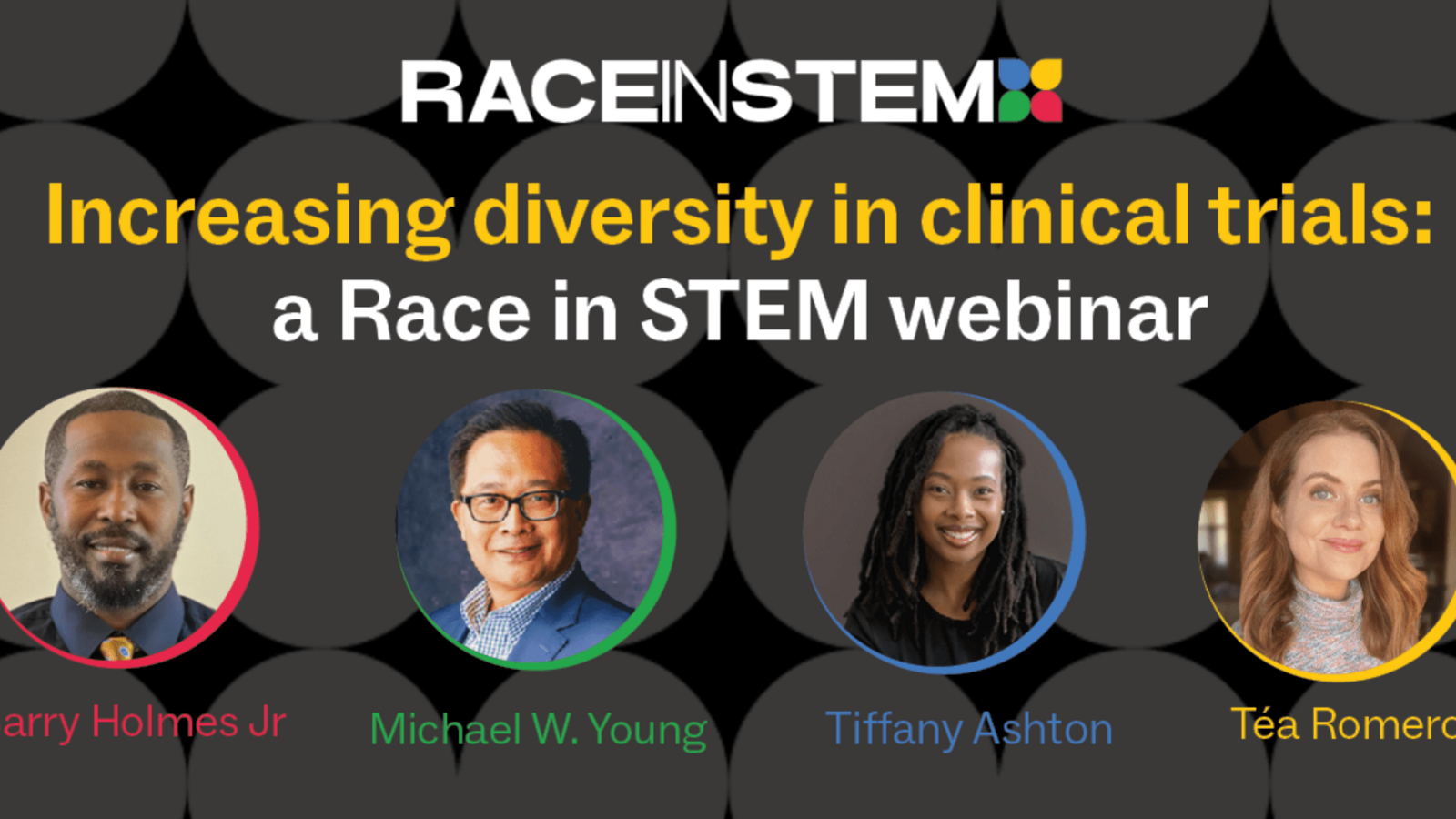How do we improve diversity in clinical trials? What are the barriers to entry that prevent minority groups participating in trials? What are the diversity challenges facing the healthcare system and the medical researchers themselves? This interesting and hugely important topic was the subject of our recent Race in STEM webinar, where we welcomed four leading experts in clinical trials.
We were joined by Barry Holmes Jr – Vice President of Strategy and Development at Genisis Medical Research Group, Tiffany Ashton – Director of Operations at ClinEssentials, Michael W Young – Principal and Founder at biomedwoRx and finally, Téa Romero – Director, Alliance Management at Scout. Find out more about each of our speakers below.
The increasing profile of clinical trials
Our discussion kicked off by addressing the reasons why there has been an increase in interest in clinical trials over the last few years. Before the pandemic, the world of clinical trials was possibly a little opaque. Anyone looking in from the outside would have had little idea what they involved, who was involved and how they could participate themselves. Michael Young, Principal and Founder at biomedwoRx, feels that COVID has brought clinical trials firmly to the public consciousness. "I think in the last four years, without doubt, the COVID epidemic has brought the phrase clinical trials to the kitchen table and everybody's house,” he said. “People wanted to understand how these were being conducted. How important and what data was being generated?”
The importance of language
How significant is the part played by language in discussing clinical trials? Téa Romero, Director of Alliance Management at Scout, feels we need to do more to understand a patient’s experience when participating in a clinical trial. "How is the patient feeling in this moment?” she said. “We're speaking in each other's language and to each other, but not really considering the patient and the fact that the patients are taking time out of their day to do this. The patient may be missing work to participate, for example.”
We can improve understanding by tailoring the way we refer to people taking part in clinical trials. She argued that “We don’t talk about the participants as if they are full, whole people. We talk about them as participants, and I think we need to change that language.”It’s all about transparency, communication and valuing the patients as individuals.
If you’d like to learn more about this topic you can catch up on the full conversation below and stay tuned for more insightful conversations like this one very soon.
Many thanks to our participants for providing their insights. Find out more about the panelists below:
Barry Holmes Jr: Vice President of Strategy and Development at Genisis Medical Research Group
Barry brings a diverse set of skills to the problem of diversity in clinical trials. Combining extensive experience in the industry with personal experiences navigating the healthcare system, Barry has the drive and knowledge to affect change in the industry.
Téa Romero: Director, Alliance Management at Scout
Téa specializes in face-to-face, virtual, and hybrid clinical meeting planning, patient payment, travel, and logistics support, as well as virtual collaboration and education.
Michael W Young: Principal and Founder at biomedwoRx
Michael’s company provides global go-to-market services to the contract research, biotech, pharma, and biomedical community (specifically between the clinical and marketing area).He’s engaged in projects designed to optimize revenue, strategic alliance collaboration, market adoption curves, and life-cycle opportunities for pre-market products and mature brands in the biotech, device, and e-commerce arenas. He’s done extensive work in the hematology and immunocompromised patient arena.
Tiffany Ashton: Director of Operations at ClinEssentials
Tiffany is an industry leader operating at the intersection of clinical research, training, and innovation. She combines efficiency and smart solutions to enable clinical research professionals to confidently thrive and improve the productivity and quality of services they deliver.

